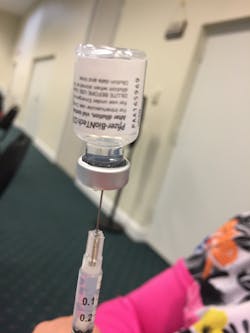Fully vaccinated people can resume activities without wearing masks or physically distancing while indoors and outdoors, except where required by federal, state, local, tribal, or territorial laws, rules, and regulations, including local business and workplace guidance, the Centers for Disease Control and Prevention (CDC) said in an updated guidance.
The agency also said that fully vaccinated people can refrain from testing following a known exposure unless they are residents or employees of a correctional or detention facility or a homeless shelter.
However, there are situations in which vaccinated people should still wear masks, such as while riding on public transportation, including trains, planes, and buses, or while in transportation hubs, including airports, train stations, and bus terminals.
“Currently authorized vaccines in the United States are highly effective at protecting vaccinated people against symptomatic and severe COVID-19. Additionally, a growing body of evidence suggests that fully vaccinated people are less likely to have asymptomatic infection or transmit SARS-CoV-2 to others. How long vaccine protection lasts and how much vaccines protect against emerging SARS-CoV-2 variants are still under investigation,” the CDC said.
People are considered fully vaccinated against COVID-19 after at least 2 weeks have passed since their second dose in a two-dose series (such as Pfizer-BioNTech or Moderna), or more than 2 weeks after they have received a single-dose vaccine (Johnson & Johnson).

